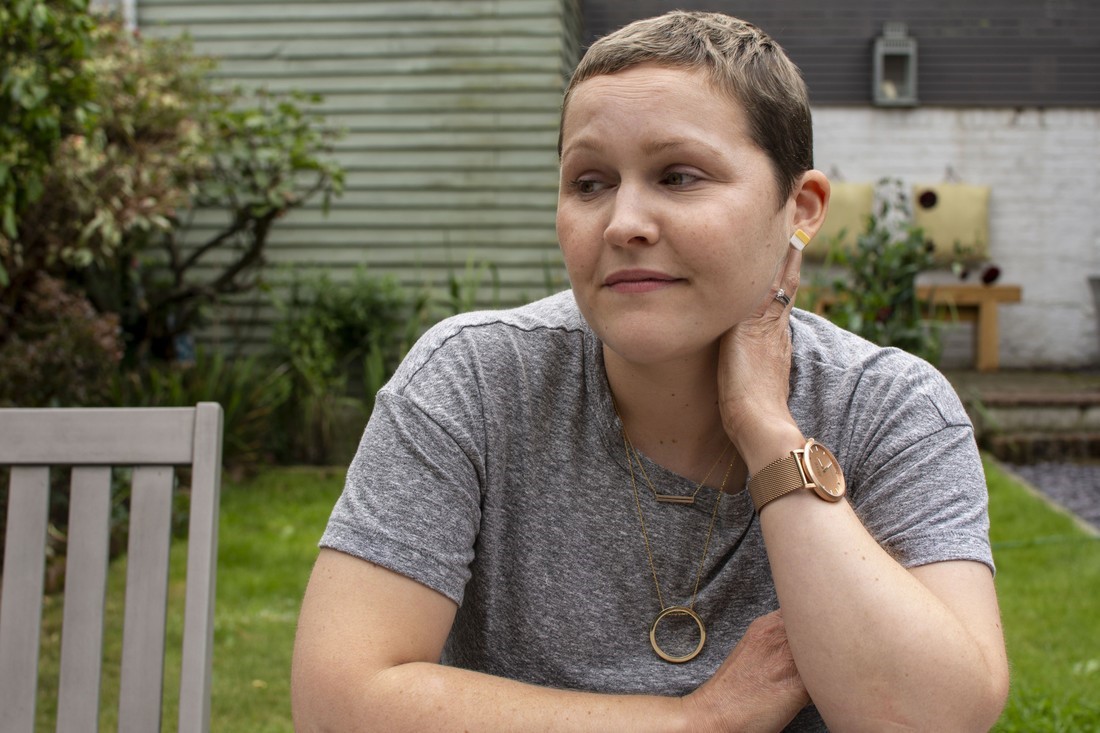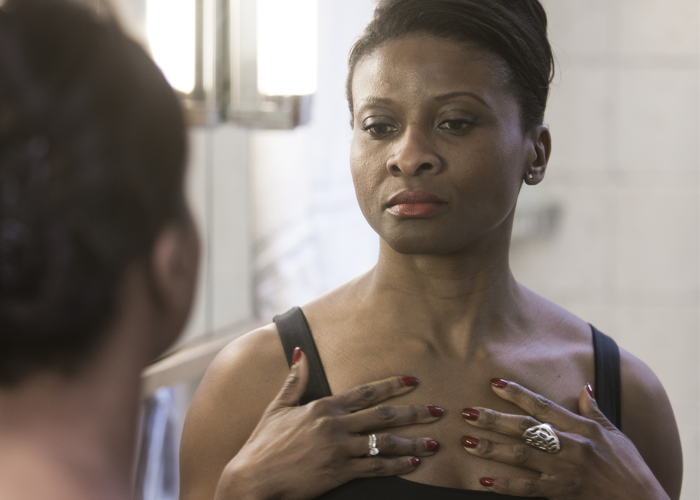It's normal to worry about being intimate after breast cancer. Dr Joy Hall answers your questions about sex and intimacy.
It's normal to worry about being intimate after breast cancer. Dr Joy Hall, who works with women on our Moving Forward courses, answers your questions about sex, intimacy, and starting a conversation with your partner.

It's common for there to be a barrier between you and your partner
It’s common to feel worried about being intimate with your partner after breast cancer. When you’re diagnosed and going through treatment, sex may be the last thing on your mind. Both you and your partner may end up creating an invisible barrier between yourselves.
Even though you may not want sex, you may feel like you miss the closeness that intimacy brings. Here are some common questions people have about sex and intimacy after breast cancer.
I’m worried about being intimate. Is this normal?
It’s different for each person and couple. Often people think that being intimate is the same as being sexual, and while this is true for some, for others it can be very different. People often say that they miss sharing a bed or having a cuddle with their partner but are frightened to ask for these things.
This is all quite normal. Because some people think sex and intimacy are the same thing, they worry about being intimate as they don’t want or feel like sex. Instead they may just crave closeness with, and comfort from, the person they love.
For many couples, simply sharing a bed with each other and ‘snuggling up’ is enough, with occasional sexual intimacy – and this is OK.
Perhaps what’s important is that, as a couple, you’re able to share and discuss your desires with each other. People frequently accommodate differences in their desires to be sexual and find their own way as a couple.
When should I start a conversation about intimacy with my partner?
You know what your partner is like and how you would normally talk to each other about ‘difficult’ things in your lives. But if you can, try to talk to each other throughout your treatment as it can be helpful further down the line if, and when, you want to be more sexual with each other.
You may find it useful to set aside a time to talk to your partner about how you’re feeling. It doesn’t have to be a long time, and it can be useful to structure the discussion so it doesn’t veer off on a tangent. You might start by saying that there’s something worrying you that you would like to talk about, or that you’re missing having a hug and take it from there.

After treatment finishes, you may feel as though you’re under pressure to feel ‘normal’ and to be like you were before your diagnosis and treatment. You may feel this in many areas of your life, including the sexual and intimate side of life. But you and your partner have been through a really frightening and difficult time, and it’s going to take time for you to heal, both physically and emotionally.
It’s important to give yourselves time and space to do this and to recognise that things have changed for you both and that there’s a ‘new normal’. This can be exciting as well as frightening. It can offer you new ways of seeing and exploring things (including sexually).
How can I become comfortable again with my body?
After treatment, you may worry about how you look or be fearful of revealing your body. If this is how you feel, it’s OK and it’s normal. Again, take your time and get to know your ‘new body’ slowly. This may involve taking time in the bath or shower to gently explore your body (focus on all your positive attributes – maybe you have great eyes, or shapely legs).

You can spend time with your partner, gradually reintroducing yourselves through gentle message and body exploration. You may find places you didn’t know were nice to be touched. Gradually, you can widen this exploration to gentle sexual exploration of each other – remember sex with a partner is a two-way process. You may find that you get aroused/turned on through touching in new places, while the ‘old ones’ may not feel so good anymore (chemotherapy can cause problems with the nerve endings in sexual areas).
If you experience pain or discomfort you may need to try new positions, which can be an enjoyable thing to do. Women often find that they need to use extra lubrication. Again this is normal and there are many lubricants available. Most women find the silicone or water-based ones work best for them (your specialist nurse or GP should be able to discuss this with you).
The most important thing here – take things slowly and keep talking with your partner – communication is key.
I’m single. How and when do I tell my date I’ve had breast cancer?
The simple answer to this question is that there’s no ‘standard’ right time or way to do this. Some useful questions to ask yourself include:
- What do I want from this date?
- Am I am looking for a serious relationship, or something no-strings-attached?
- What am I worried about?
- How will I cope with rejection?
If you’re looking for a long-term relationship, it’s important to take your time to begin to get to know someone. Do you like them? Are they someone you want to spend time with?
Sometimes it’s useful to talk about your worries with a trusted friend and perhaps rehearse with them what you’ll say to a potential new partner. You could try out something like:
'I really like where our relationship is going, and I need you to know that I had breast cancer a few months/years ago. How do you think that might affect our relationship?’
One thing that’s important is how confident you feel about yourself. When you feel comfortable with yourself, you’re more likely to feel confident when meeting new people. So the healing starts with you caring and nurturing yourself – take your time and treat yourself to some ‘me time’.
Find more hints and tips on adjusting to life after breast cancer in BECCA, our free app: